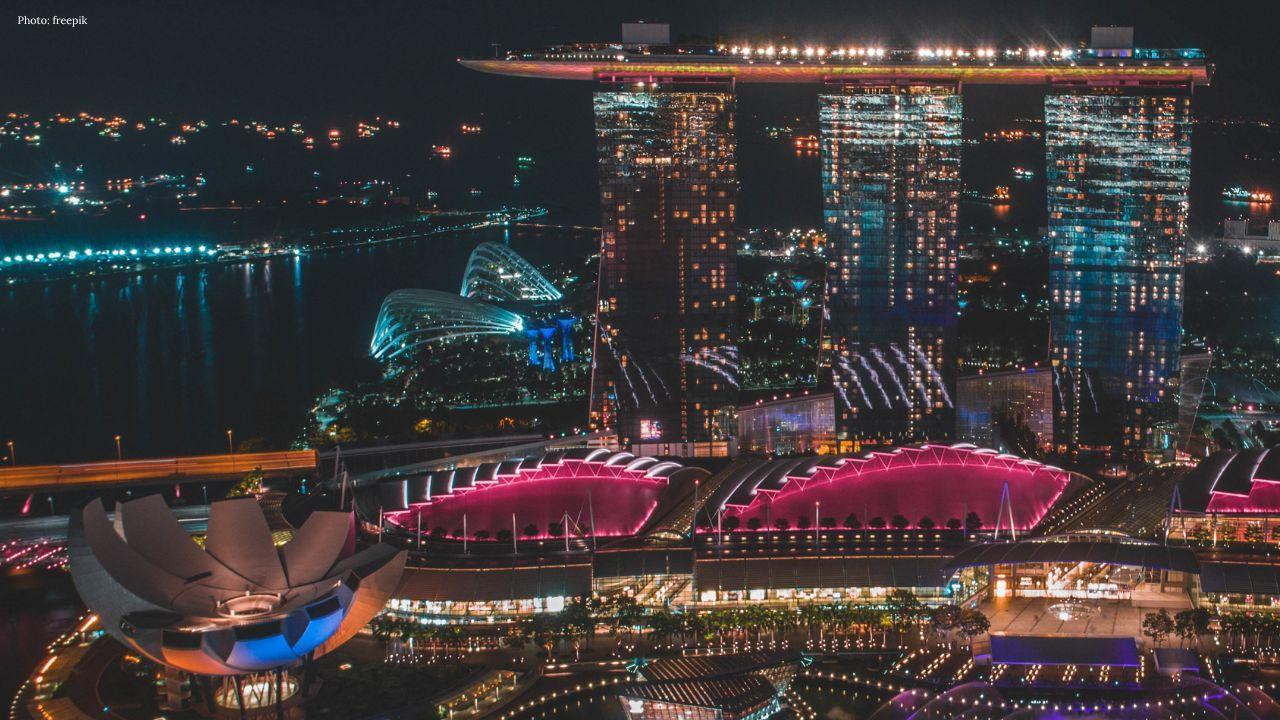You have not yet added any article to your bookmarks!

Join 10k+ people to get notified about new posts, news and tips.
Do not worry we don't spam!

Post by : Anis Farhan
A quiet but consequential shift is unfolding on the global development map. For decades, Africa’s economic and geopolitical engagements were shaped predominantly by the West. Today, however, there is a new set of players influencing Africa’s direction—and many of them are from Asia. While China’s involvement is widely documented, other Asian countries such as India, South Korea, and Japan are also deepening their roots across African economies. This new engagement is more than trade or diplomacy; it represents a rebalancing of power, priorities, and partnership models.
China’s presence in Africa is no longer breaking news—but its scale, depth, and strategic complexity continue to surprise even seasoned observers. From constructing railways and roads to funding ports and power grids, Beijing has invested heavily through its Belt and Road Initiative (BRI). But what makes China’s involvement unique is its ability to adapt its approach country by country. Whether it’s providing debt relief or supporting digital infrastructure, China’s goals are clear: economic integration, political influence, and long-term resource security.
The East African region, for example, has seen a surge of Chinese-backed megaprojects, including Kenya’s Mombasa-Nairobi railway and Ethiopia’s industrial parks. Many African leaders appreciate the speed and scope of Chinese projects, even as critics raise questions about debt dependence and labor practices. China’s willingness to invest in projects the West avoids—especially in high-risk zones—has made it a go-to development partner for many African nations.
India’s relationship with Africa, while less infrastructure-heavy, draws strength from cultural, historical, and educational ties. Over the years, India has become a reliable partner in healthcare, education, and IT services—domains that foster long-term trust and collaboration. Indian pharmaceutical companies are key players in Africa’s healthcare ecosystem, supplying affordable medicines to countries from Nigeria to Kenya.
Moreover, initiatives like the Pan-African e-Network Project have connected African students and professionals to Indian universities and hospitals, providing remote education and medical consultations. Unlike China’s state-led investment model, India’s involvement is often private-sector driven and people-oriented. This approach resonates deeply in countries that value grassroots development and institutional capacity-building.
Japan may not match China’s volume or India’s historical proximity, but it brings precision, quality, and consistency to its African engagements. Through its Tokyo International Conference on African Development (TICAD), Japan has emphasized African ownership of development projects, governance reforms, and human capital.
Japanese companies are especially active in sectors like manufacturing, energy, and transportation. But beyond business, Japan also supports skills training and knowledge transfer, reinforcing Africa’s long-term self-reliance. From vocational programs in Tanzania to tech incubation hubs in Rwanda, Japan’s “quality over quantity” approach stands out. It’s a slower burn—but one that builds stronger, more durable partnerships.
South Korea’s growing influence in Africa is largely tech-driven. Recognizing Africa as the next frontier for digital growth, Seoul has fostered partnerships in mobile connectivity, digital education, and smart city projects. South Korea’s commitment to innovation has found a natural partner in Africa’s youthful, tech-savvy population.
In 2023, the Korea-Africa Summit showcased Seoul’s intent to enhance its footprint, particularly in climate change mitigation, digital transformation, and public health. African countries see South Korea not only as a model of rapid development but also as a potential collaborator in leapfrogging traditional barriers using technology.
What makes Asia’s involvement in Africa different today is its orientation. Historically, many foreign players viewed Africa primarily as a resource base—rich in oil, minerals, and raw materials. While those interests remain, there’s a growing realization among Asian partners that sustainable growth hinges on empowerment. Capacity building, local employment, technology transfer, and knowledge exchange are slowly replacing extractive relationships.
India’s Africa-Asia Growth Corridor (AAGC), co-developed with Japan, is a perfect example. Unlike the BRI, the AAGC emphasizes democratic values, transparent funding, and regional connectivity. Though still in its nascent stages, it symbolizes a shift from purely transactional engagement to one rooted in shared prosperity.
Africa’s pivot to Asia is not just about who shows up with the biggest cheque. It’s also about who listens, understands local needs, and provides alternatives to legacy systems. For many African nations, Asian countries offer development models that are closer to their own realities—countries that were once colonies, fought poverty, and navigated rapid modernization.
Asian partners are often perceived as more agile, less prescriptive, and more willing to invest in human development than Western donors. This perception, while not universal, fuels a new sense of South-South solidarity. In many ways, Africa is writing its own development script—and Asian countries are helping provide the pen, paper, and ink.
The Asia-Africa engagement story is not without its complications. Issues like environmental degradation, labor displacement, lack of local consultation, and debt sustainability continue to crop up. Moreover, there’s an ongoing debate about how equitable these partnerships really are. But the broader picture remains clear: Asian involvement in Africa is no longer optional or symbolic—it’s strategic, expansive, and long-term.
Moving forward, the challenge for both continents will be to institutionalize their collaboration in ways that benefit ordinary citizens, not just governments and corporations. Stronger legal frameworks, transparent agreements, and mutual accountability will be essential to ensure that the promise of Asia-Africa engagement lives up to its full potential.
In an increasingly multipolar world, the relationship between Asia and Africa represents a new axis of global development—less noisy, less confrontational, but deeply consequential. As traditional alliances weaken and the rules of global engagement are rewritten, Africa’s growing alignment with Asian countries may well shape the next chapter of economic diplomacy.
From trade corridors to tech hubs, medical outreach to educational exchange, the partnership is evolving on all fronts. And as this silent shift gains momentum, it’s clear that the future of both continents is intertwined more deeply than ever before.
The information provided in this article is for editorial and informational purposes only. While utmost care has been taken to ensure accuracy, readers are advised to independently verify key details where necessary. The perspectives presented do not necessarily reflect those of Newsible Asia or its editorial affiliates.










Sumo Rocked by New Bullying Scandal as Terunofuji Admits Abuse
Retired grand champion turned stablemaster reports himself to authorities for violent conduct toward

Son of Oil Tycoon Riza Chalid Sentenced to 15 Years in $17 Billion Corruption Scandal
Jakarta Corruption Court convicts Muhammad Kerry Adrianto Riza in high‑profile Pertamina graft case

Marina Bay to Celebrate Disney Adventure With Fireworks & Fun
UOB Marina Bay Sands & Singapore Tourism Board join Disney Cruise Line for a 2-month nautical celebr

Rashmika Mandanna and Vijay Deverakonda Tie the Knot in Grand Udaipur Wedding
The beloved actors celebrated their Telugu and Kodava heritage with traditional ceremonies at ITC Me

Raja Ampat Welcomes Back Endangered Zebra Sharks
Scientific collaboration and community education drive rare species repopulation in the Coral Triang

Tomorrowland Thailand Set for Full‑Scale Asian Debut in December 2026
Thailand to host world‑renowned electronic music festival in Pattaya, expected to draw tens of thous